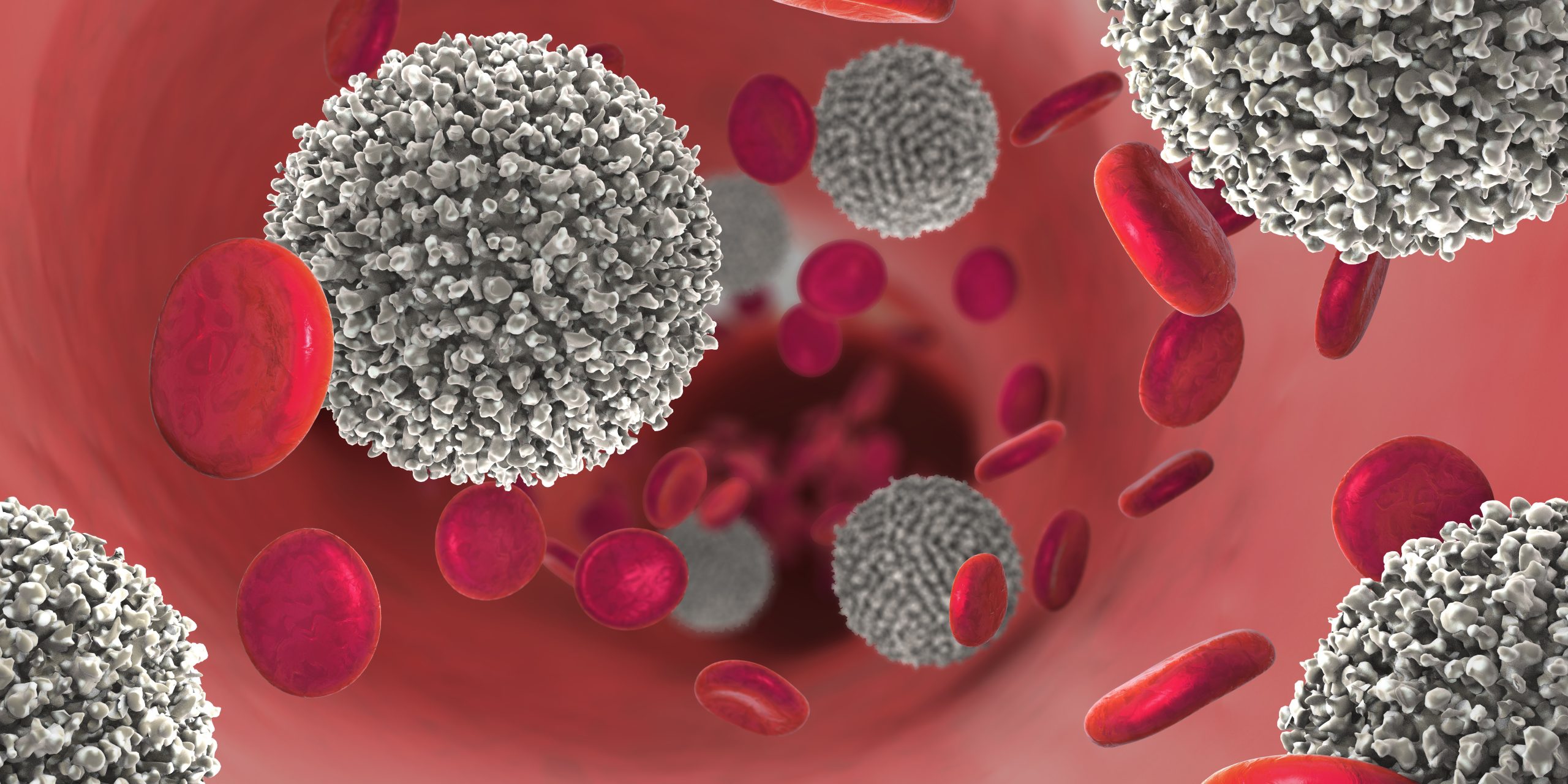
Frontline sequential chemotherapy with blinatumomab resulted in encouraging long-term survival in newly diagnosed patients with Philadelphia chromosome (Ph)-negative B-cell acute lymphocytic leukemia (ALL), according to a phase II trial.
The goal of the trial, led by Elias Jabbour, MD, of the MD Anderson Cancer Center in Houston, Texas, was to establish whether the incorporation of blinatumomab into frontline therapy for ALL could improve outcomes. The primary endpoint was relapse-free survival evaluated in the intended-to-treat population.
The single-arm, phase II trial enrolled 38 patients aged 14 years or older with confirmed, newly diagnosed Ph-negative B-cell acute lymphocytic leukemia at the University of Texas MD Anderson Cancer Center. Patients received four cycles of intensive chemotherapy (hyper-CVAD [hyperfractionated cyclophosphamide, vincristine, doxorubicin, and dexamethasone] alternating with high-dose methotrexate and cytarabine). That treatment was followed by four cycles of blinatumomab consolidation (up to 28 μg/day by continuous intravenous infusion for 28 days, given every 42 days). Maintenance therapy consisted of 15 cycles of alternating blocks of three cycles of POMP (6-mercaptopurine, vincristine, methotrexate, and prednisone) chemotherapy and one of blinatumomab.
With a median follow-up of 37 months, estimated three-year relapse-free survival was 73% (95% CI, 56-85). None of the 38 patients relapsed more than two years after the start of therapy. One patient (3%) developed transient grade 3 cytokine release syndrome, and four patient (11%) had a grade 3 blinatumomab-related neurological event. The most common non-hematological grade 3/4 adverse events were infections, which occurred in 14 (37%) patients during induction and in 27 (71%) during consolidation chemotherapy cycles. One patient (3%) discontinued therapy due to treatment-related neurotoxicity. There were two deaths—one due to infection and another due to respiratory failure—which were not considered treatment-related.
“Frontline sequential chemotherapy with blinatumomab resulted in encouraging long-term survival,” Dr. Jabbour and colleagues wrote. “Future randomized studies should evaluate the routine incorporation of blinatumomab in the treatment of patients with Ph-negative B-cell ALL.”
The study was funded by Amgen.
Reference
Jabbour E, Short NJ, Jain N, et al. Hyper-CVAD and sequential blinatumomab for newly diagnosed Philadelphia chromosome-negative B-cell acute lymphocytic leukemia: a single-arm, single-centre, phase 2 trial. Lancet Haematol. 2022;S2352-3026(22)00285-X. doi:10.1016/S2352-3026(22)00285-X






 © 2025 Mashup Media, LLC, a Formedics Property. All Rights Reserved.
© 2025 Mashup Media, LLC, a Formedics Property. All Rights Reserved.